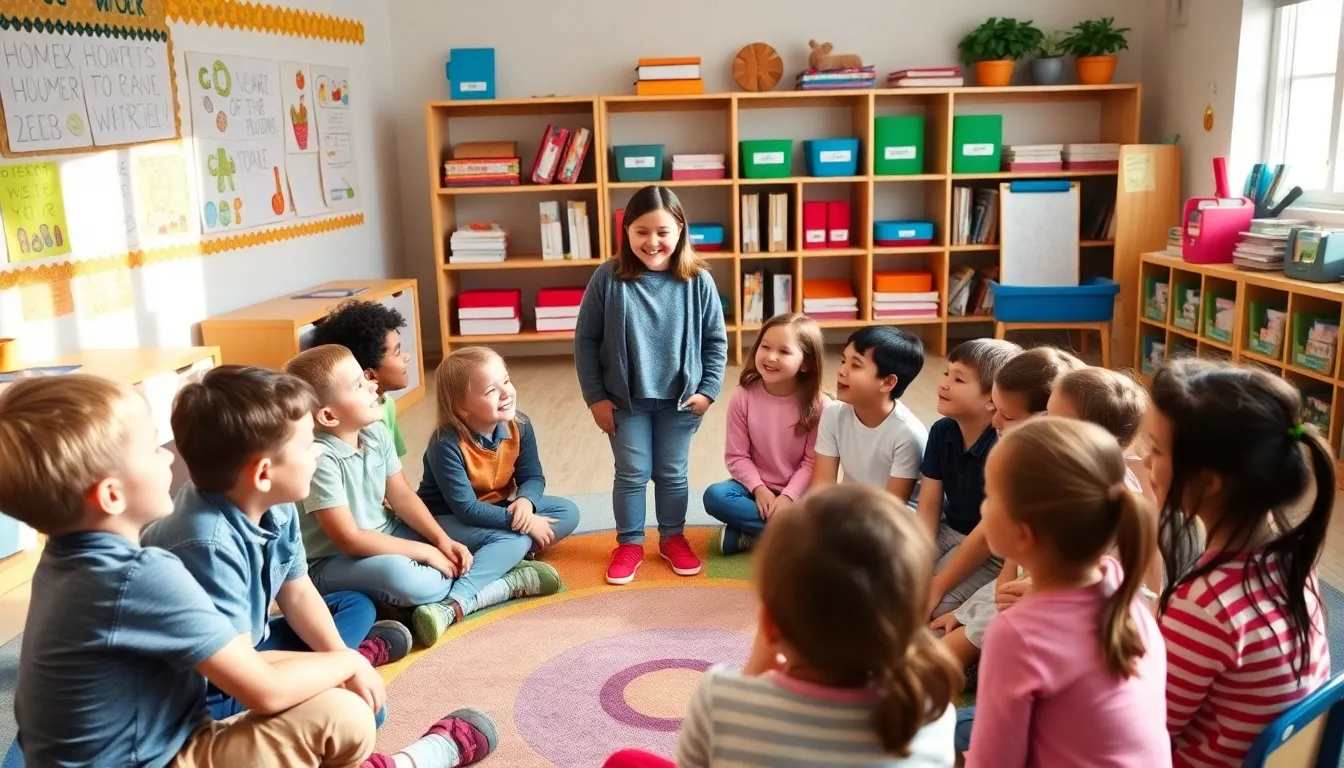Jokes for elementary school kids are more than just a way to hear laughter: they are little nuggets of joy that can brighten any day. Imagine walking into a classroom filled with kids chuckling at their favorite punchlines. Now, who wouldn’t want that? Not only do jokes lighten the mood, but they also play a crucial role in a child’s development. Whether it’s through a witty knock-knock, a silly pun, or a classic one-liner, the right joke can make learning fun. So, buckle up as we jump into the wonderful world of jokes and discover how to sprinkle a bit of humor into children’s lives.
Table of Contents
ToggleWhy Jokes Are Important For Kids

The Benefits of Humor in Childhood
Humor isn’t just about laughs: it’s a vital part of healthy development. Kids learn to understand social cues better when they grasp the concept of a joke. Finding humor helps them express emotions effectively and build resilience. When children laugh, they experience a surge of endorphins, which naturally makes them feel better. This connection contributes to emotional well-being and helps reduce stress.
How Jokes Encourage Learning
Learning doesn’t have to be serious business. Jokes introduce children to new vocabulary, concepts, and ideas while keeping them engaged. When kids can think critically about a punchline, they improve their cognitive functions. Also, using humor in lessons makes it more likely for kids to remember important information. The joy of a good laugh fosters a positive attitude toward learning. Who knew that a simple joke could pave the way for academic success?
Types of Jokes Kids Enjoy
Knock-Knock Jokes
Knock-knock jokes are a timeless favorite among kids. These jokes build suspense and participation, making everyone feel included in the humorous exchange. Here’s an example:
Knock, knock.
Who’s there?
Lettuce.
Lettuce who?
Lettuce in, it’s freezing out here.
Each knock-knock joke brings a sense of anticipation and giggles to the room.
One-Liners
One-liners pack a punch without taking too much time. They are perfect for kids on the go. Quick, witty, and often surprising, these jokes work beautifully in casual settings. For instance:
I told my computer I needed a break, and now it won’t stop sending me kit-tea memes.
A smooth delivery of a one-liner can trigger instant laughter among peers.
Puns and Wordplay
Puns have a charming way of tickling the funny bone. Kids find them hilarious and often enjoy sharing these clever twists with friends. A classic example is:
What do you call cheese that isn’t yours? Nacho cheese.
Puns encourage kids to explore language ideas and expand their vocabularies in a delightful way.
Classic Jokes For Kids
Animal Jokes
Animal jokes are another crowd-pleaser. Kids love jokes involving their favorite creatures. Here’s a classic:
Why did the chicken join the band? Because it had the drumsticks.
Such jokes create an entertaining connection between laughter and learning about animals.
School Jokes
What better way to lighten the school atmosphere than with jokes about school? Here’s a funny one:
Why was the math book sad? Because it had too many problems.
School jokes not only make students chuckle but can also ease tense moments during tests.
Seasonal and Holiday Jokes
Jokes For Halloween
Halloween brings a delightful mix of spook and silly. Kids can enjoy:
What do you get when you cross a snowman and a vampire? Frostbite.
These spirited jokes create a fun atmosphere during the fall season.
Jokes For Christmas
Christmas, with its festive vibes, is another prime time for jokes. A popular one goes:
What do you call an elf who sings? A wrapper.
Mixing holiday cheer with laughter helps create lasting memories for children.
Tips For Telling Jokes To Kids
Timing and Delivery
Timing is everything when it comes to telling jokes. A well-placed pause before the punchline can amplify the laughter. It’s all about reading the room and creating excitement. For example, delivering a punchline with enthusiasm can grab kids’ attention and increase their engagement.
Involving the Audience
Engagement makes storytelling even more enjoyable. Asking kids to chime in or to guess the punchline can make the experience interactive and memorable. This not only keeps them involved but also helps them practice their reading and comprehension skills through laughter.





